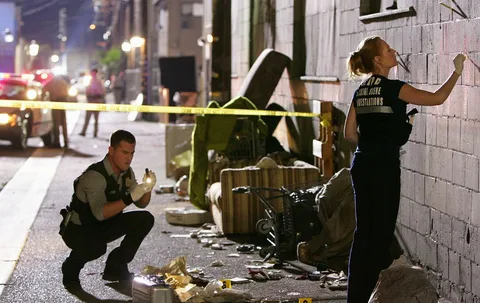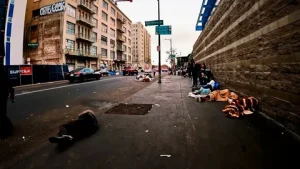
The Psychological Impact of Revenge
“Livin’ on the Edge” gives us a powerful lesson about the psychological impact of revenge. It shows how revenge can consume our minds, damage our relationships, and lead to more violence.

“Livin’ on the Edge” by Rodney Virgil is a gripping story that teaches us many moral lessons about crime and its consequences. The main character, Jaquan Miller, goes through a lot of changes in the book. His actions and the results of those actions show us important truths about right and wrong and what can happen when we choose a life of crime.
Jaquan starts as a young man who loses his mother. This terrible event fills him with anger and a desire for revenge. He believes that Sam, his mother’s ex-boyfriend, is the one who killed her. This belief leads him to make some very dangerous choices. Instead of seeking justice through the law, Jaquan decides to take matters into his own hands. This is the first step down a dark path.
One of the main moral lessons in the book is about revenge. Jaquan’s desire for revenge is understandable, but it leads him to do terrible things. He kills Sam, thinking it will make him feel better. But after he does it, he feels empty and lost. This shows us that revenge does not heal our pain. It only makes things worse. It brings more violence and suffering, not just to the person seeking revenge but to everyone around them.
Another important lesson is about the cycle of violence. When Jaquan kills Sam, he sets off a chain of events that leads to more crime and violence. He gets deeper into the world of drugs and crime, guided by his cousin D-bo. This shows how one act of violence can lead to many more. It becomes a cycle that is hard to break. Jaquan’s story teaches us that violence only creates more violence, and it is a cycle that can destroy lives.
The book also shows the consequences of crime on a personal level. Jaquan changes as he gets more involved in crime. He becomes harder, less caring, and more distant from the people who love him. His relationships with his friends and family suffer. He pushes away those who try to help him, like his grandmother. This shows us that crime does not just affect the victim; it also changes the person committing the crime. It can turn them into someone they do not want to be.
“Livin’ on the Edge” also teaches us about the importance of choices. Jaquan makes many choices throughout the book. Each choice leads him further down the path of crime. But it is important to see that he always had a choice. He could have chosen a different path. This teaches us that our choices matter. We are responsible for the decisions we make, and those decisions shape our lives.
The broader message of the book is about the impact of crime on the community. Jaquan’s actions affect not just him but everyone around him. His friends, his family, and his community all suffer because of the violence and crime he brings into their lives. This shows us that crime is not just a personal issue but a community issue. When one person turns to crime, it affects everyone. It creates fear, instability, and pain for the whole community.
In the end, Jaquan’s story is tragic. He loses everything because of his choices. He loses his mother, friends, sense of self, and finally, life. This shows us the ultimate consequence of a life of crime. It is a life that leads to loss and destruction. Jaquan’s story is a powerful reminder that crime does not pay. It might offer short-term gains, but it only brings pain and suffering in the long run.
“Livin’ on the Edge” is a book that makes us think about the moral implications of our actions. It shows us the difference between right and wrong and the importance of making good choices. It reminds us that revenge is not the answer and that violence only creates more violence. It teaches us about the impact of crime on individuals and communities and the heavy price of a life of crime.
“Livin’ on the Edge” by Rodney Virgil is a story with many important moral lessons. Jaquan’s actions and the consequences of those actions show us the dangers of revenge, the cycle of violence, and the importance of making good choices. It reminds us that crime affects everyone and that the true cost of crime is always higher than we think. Understanding these lessons allows us to choose a better path for ourselves and our communities.

“Livin’ on the Edge” gives us a powerful lesson about the psychological impact of revenge. It shows how revenge can consume our minds, damage our relationships, and lead to more violence.

It is a call to action to provide better resources and support for those living in poor neighborhoods. Addressing these issues can help create a safer and more hopeful future for young people like Jaquan.